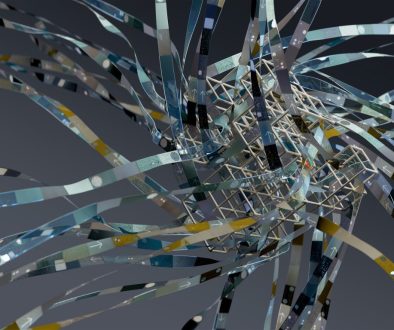Moonrock, Episode 4: The Conclusion of the new Science Fiction serial from Mark Laporta
Editor’s Note: You may start the series from the beginning with Episode 1 by clicking here.
The Rulzarians, a monotreme species, reminded Armand of the long-extinct terrestrial platypus he’d seen only in photos. That is, except that these creatures walked on two legs and had hands of such dexterity as to make human pianists tear their hair out with envy.
But considering the intricate genomic makeover he needed, that was all to the good. There was just one problem.
“I’m afraid it’s impossible to make you humanoid,” said Yegholidaar, the geneticist assigned to Armand’s case. “The disparity is too great. The most we could do is give you a number of insectoid species to choose from.”
“That’s no improvement,” said Armand.
“Even if you could fly?” asked Gleanant. “Don’t all humanoids dream about that?”
“Not that kind of flying,” said Armand. “Seriously, that’s the best you can do?”
“Hmm … well,” said Yegholidaar. “We do have several humanoid genomes on file. Perhaps your android could help us select an appropriate option for cloning?”
“Got your complete medical records on file, Boss,” said M429.
“You’d transfer my consciousness into a clone?” asked Armand. “But then I’d be a biological robot.”
“Don’t worry,” said Gleanant. “None of your Earth friends would know the difference. Why, I bet Yegholidaar could even make some enhancements.”
“Indeed,” said the alien geneticist. “But what is this … Earth?”
“Never mind,” said Gleanant. “It won’t be inhabited for another million years.
“What?” asked Armand.
Gleanant explained that the Ruzarian star had gone supernova centuries before humans walked on two legs. Despite that, she told Armand, no one had ever surpassed them in genetic engineering.
“More messing around with Time?” asked Armand. “OK, Yegholidaar, when can you start?”
“Why as soon as you give us the down payment,” said Yegholidaar. “Hmm, in your case, a hundred fifty thousand credits.”
“Where the moldy muon am I gonna get that?” asked Armand.
“Honestly,” said Gleanant, “your ignorance is astonishing. You’re a Dolnatrid now. They make the strongest silk thread in six galaxies. It supports more weight than titanium and it’s worth thousands of credits a meter.”
“Is this true, Yegholidaar?” asked Armand.
The monotreme clacked his duck-like bill.
“Oh definitely,” he said. “A hundred kilos of Dolnatrid silk would buy you two cloned bodies.”
“But … I don’t know how to make an ounce of it,” said Armand.
“Boss,” said M429, “let me explain a few things.”
During a brief conversation, the spidery android gave him a basic primer in “where Dolnatrid silk comes from.” For once, Armand was grateful he wasn’t human, so he couldn’t throw up.
“OK,” he said. “But I want some privacy. I’ll need a comfortable room and about three-hundred kilos of trelidra leaves.”
“Coming up,” said Gleanant
Armand turned back to Yegholidaar.
“Make sure my body’s first class,” he said. “After I’m done with this … project … I’m gonna need a complete makeover.”
A little over an hour later, Gleanant had completed her work and Armand entered a spacious dome, stacked high inside with baskets full of Dolnatrid trelidra leaves. Meanwhile, M429 consulted with Yegholidaar about Armand’s clone.
“You’ve got me worried,” it said. “Consciousness transference is a risky business. You could end up erasing my boss for good.”
“Risks dog every endeavor,” said the Rulzarian. “But as long as no one interferes, there should be no problem.”
With that, he hurried off to his lab. While M429’s logic circuits accepted Yegholidaar’s reassurances, his agile mind was still troubled. If Gleanant pulled a fast one….
“You forget, I’m telepathic,” said fiery alien AI from behind him.
M429 spun around to defend himself, but it was too late.
“Power down, M,” she said. “Nobody likes a smarty-pants robot.
Armand’s android tried to object, but it was all over. Its status lights went dark and it came to a dead halt.
“Time we moved things along,” whispered Gleanant. Once again, she deflected the flow of Time. But now it was aimed at M429, which crumbled into a pile of corroded metal and burnt out circuitry. Mere minutes later of subjective time, Armand emerged from his dome, exhausted.
“There,” he said. “That took a lot less time than I … Oh no.”
Just then, Yegholidaar returned from his lab, wheeling a humanoid clone on a gurney.
“All ready,” he said. “And faster than I expected. But look, you have the silk ready, too. Well, then, let’s get your consciousness transferred, shall we?”
“But …” said Armand.
“Nothing to worry about,” said the monotreme. “I’ll attach these electrodes and….”
Before he could touch Armand, Gleanant swooped down and attached herself to the mental scanning device. A few moments later, a triumphant cry echoed out of the clone’s mouth.
“Free!” the clone shouted. “I’m free!”
Armand’s heart sank. Not only was he devastated at the thought of living the rest of his life as a sentient arachnid, and distressed by the loss of M429. But the thought of Gleanant roaming free in the universe was a terrifying thought.
He knew he had to find some way to stop her. But how?
“Look at me,” Gleanant shouted in the male clone’s voice. “Nothing can stop me, now that I’m free of that horrible sphere.”
“Excuse me,” said Yegholidaar. “Stop you from what?”
“Ruling the universe!” said Gleanant.
“How?” asked the Ruzarian. “We didn’t encode any extraordinary abilities into your humanoid body. There’s only so much a phenotype like that can do without machines and electronics.”
Gleanant thrust out her new right arm and pointed at M429.
“I’ll show you,” she said. “Dance, you talking trash bin.”
M429 raised its left antenna.
“Thanks,” it said, “but I’d better conserve energy. It’s getting close to charging time.”
“I’ll charge you, Worm,” Gleanant shrieked, and pointed again — to no effect.
“Kind of looks like, no sphere, no power,” said Armand. “I’m stuck like this forever!”
Gleanant stumbled over to Yegholidaar.
““You!” she said. “Zap me back.”
“Oh, no,” said Armand. “No more of your ‘help.’ Put me in the sphere, Yegholidaar.”
The master geneticist waved his hands in the air.
“Absolutely not,” he said. “Organic minds are too fragile to transfer into a machine.”
“But I am a machine mind,” said Gleanant.
“Not anymore,” said Yegholidaar. “The only candidate for transference into that globe is M429. And who knows if their systems are compatible.”
“What do you think?” asked Armand.
“Don’t know as we have a choice, Boss,” said his android assistant.
“Hmm….” said Yegholidaar. “If you’re willing to risk it, we do have the technology. Bring me the sphere and we can begin at once.”
“No!” said Gleanant.
Armand, who’d been a Dolnatrid long enough to become familiar with his new body, leapt forward and bit the unsuspecting humanoid clone on the leg. As he’d hoped, venom flowed out of the fangs at the front of his mouth, and into his one-time “servant.”
“I…I feel faint,” said Gleanant. “How did you … did you … know … about …”
“Lucky guess,” said Armand. who now took pleasure in watching the clone collapse to the ground ─ until a thought crossed his mind. “Didn’t kill her did I?”
“No way, Boss,” said M429. “But let’s do this before she wakes up.”
Armand’s thorax tensed. If Yegholidaar succeeded, would M429 become as power-mad as Gleanant? The Ruzarian connected one end of his device to inputs on the sphere and the other end to M429’s ovoid brain case. After a series of comlink calls to his lab, the device was recalibrated and ready.
“Are you sure about this?” he asked.
“A sure as the square root of Pi,” said M429.
Yegholidaar nodded and entered a few commands into his transference console. The sphere rocked to and fro on the ground and rose into the sky.
“Whoa,” said a hollow version of M429’s voice. “Hey Boss, you wanna be a little taller this time?”
“Just … make me human again,” said Armand, “and get us back to our own time.”’’
“What about Gleanant?” asked M429.
“I know what that monster deserves,” said Armand. “Why don’t you….”
Suddenly, Armand’s mandibles clamped shut, and he lost consciousness. Hours later, he awoke from a deep sleep, after a bizarre web-spinning dream. Without thinking, he stood up on two legs for the first time in days.
“I’m me again!” he shouted. “You even remembered some clothes.”
“That was the hard part,” said M429. “Human fashion is so illogical.”
In full control of the sphere’s astonishing technological array, M429 whisked Armand off Rulzaria and back to the moon he was mining days before. In the nick of time, the spidery android loaded Armand back into his familiar pressure suit and set him down on the moon’s rocky surface. Armand gazed around.
“Where’s Gleanant?” he asked.
“Dropped her off with the species that made her,” said the android. “Let them deal with her … attitude.”
“So now what?” asked Armand.
“Depends,” said M429, “How rich do you want to be?”
“Oh no,” said the human. “I’ve had enough wishes come true. Just change into your old self and let’s forget the whole thing. Are we where we started, in 3067?”
“To the nanosecond, Boss,” said M429.
Armand’s jaw dropped as the bright red sphere fell into a small crater to his right and M429 appeared to his left.
“Great to be back,” said M429.
“Too bad about you losing your unlimited power,” said Armand. “But I think it’s for the best.”
“Whatever you say, Boss,” said the android.
But, as anyone familiar with M-series androids would have known, its status lights were no longer blinking according to spec. Had the android really given up that power? Armand might never find out. Until, that is, the next time he found himself horribly transfigured by idle curiosity.
Mark Laporta is the acclaimed author of the Changing Hearts of Ixdahan Daherek series and the new novel, Probability Shadow, which was published in October by Chickadee Prince Books, available now in paperback or ebook on Amazon, Barnes & Noble or at a bookstore near you. He is also the author of the innovative science fiction noir serial, Insective, which you can read for free in Audere Magazine.
Illustration: Detail of an image by RiccoStange/Pixabay
Discover a universe of alien intrigue and adventure at http://tinyurl.com/ml-sci-fi



